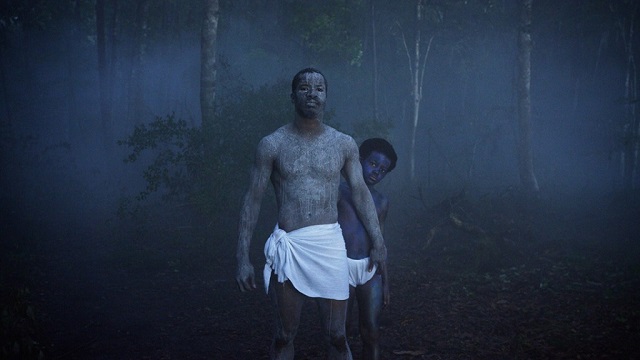America is addicted to stories of the Great White Savior, especially when it comes to dealing with our problematic historical history of race. The Revenant struggled to portray the plight of Native Americans because it chose to focus on a white European dude who happened to marry a Native American and have a half-Pawnee son. Worse, Alejandro G. Inarritu killed off the half-Pawnee son at the end of the first act so a white dude could exact revenge for the injustice inflicted upon him and his Native American friends. While 12 Years A Slave focused on an educated black man who accidentally got pulled into slavery, he was only saved by a friendly white Canadian. Hell, even Stonewall, Roland Emmerich’s depiction of the landmark New York street riots that became an icon for gay civil rights, took the inciting brick from the various people of color involved in the riots and handed it to a fictional white dude. At the very least, The Birth of a Nation dissects the Great White Savior, preventing the white audience from having a surrogate to allow them an easy moral righteousness.
Nat Turner (director/co-writer Nate Parker) was born into slavery as the child of two Africans owned by the Turner family. From birth, Nat was destined to be a great leader of the slaves, once he figured out how to harness his great powers of leadership. At an early age, house mistress Elizabeth Turner (Penelope Ann Miller) took Nat in as her pet project teaching him how to read scripture. Nat developed a lifelong relationship with Christianity, the weapon he would first wield in support of the slave owners and then against them.
Samuel Turner (Armie Hammer) grew up playing games with Nat, forming a bond and trust beyond the accepted slave/owner relationship. Nat has enough pull with Sam to convince him to rescue a young woman from certain sexual enslavement, citing her potential as a wedding gift to Sam’s wife. Even with their familiarity, Sam repeatedly takes the time to remind Nat of his station as a slave.
Besides, Sam is the nicest slave owner in the county. Nat and Sam go off on a preaching tour to various southern estates to preach at the slaves in a futile attempt to quell their anxieties and rebellions. Each farm is worse than the last, culminating with an owner knocking the teeth out of a slave on a hunger strike and then force feeding him with a funnel. Nat turns from complacent slave into preacher from hell only after a group of white guys rape Nat’s wife, another white guy rapes another slave’s wife at one of Sam’s parties, and Sam orders Nat’s brutal whipping.
For the first 3/4 of the movie, The Birth of a Nation is a prestige-laden period piece punctuated by rather obvious religious symbolism. It’s rather respectful and demure in its depictions of atrocity, choosing to keep the two rapes off screen. Up until his whipping, the worst Nat actually faces is pricking himself on a Cotton thorn, bleeding all over the white cotton. Once the rebellion starts, we’re in the revenge portion of a rape-revenge movie. Suddenly, we’re closer to Django Unchained than The Birth of a Nation. The self-freed Africans kill their slave owners in a variety of extremely violence manners. Parker indulges in the mass murder as catharsis on the path to freedom. Even though the rebellion is ultimately a failure, resulting in the slaughter of hundreds of slaves in the attempt to quell subsequent rebellions.
Writing, directing, and producing a movie where you star as one of America’s greatest tragic heroes is an act of Brass Ball egotism. Parker is so focused on making himself look good that every other character, especially the women, falls by the wayside. Every character is reduced to being another brick in Nat Turner’s path to rebellion. Sam’s complicated character only serves Nat instead of examining his life. No slave gets more than a handful of lines. All the other slave owners are reduced to cartoonish caricatures. The Birth of A Nation is all about Nat.
The Birth of a Nation isn’t a nuanced examination of a system of oppression. Instead, it is a polemic. It’s a passion play which glorifies both Nat Turner and Nate Parker. It’s less 12 Years A Slave than The Revenant (which glorified Leonardo DiCaprio) or Braveheart (which glorified Mel Gibson). The Birth of a Nation is a raging call to action for a black nation to rise up against their oppressors regardless of the ultimate outcome. Failure is an option because it will add fuel to the next rebellion. As a work of vanity doubling as a sermon from the mound, The Birth of a Nation certainly serves its brute audience pleasing purpose. It’s well framed, color graded to hell, frequently sledgehammer obvious, well paced, and exciting as hell. Parker traffics in the language of Religiosity to reach a broad audience beyond the secular white audiences that make up the panels of judges. It’s not a work of genius, but its a helluva time.


